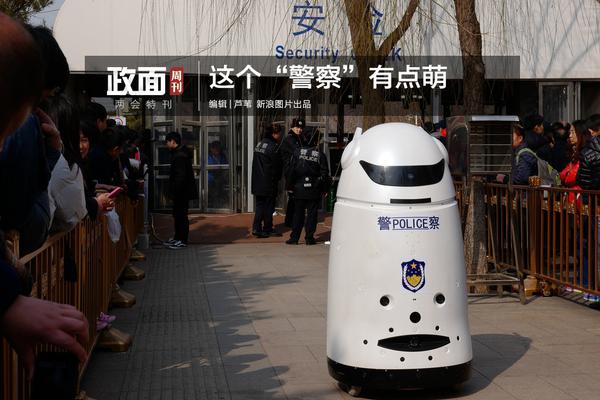
The five functional modules of the operating system are processor management, memory management, device management, file management and operation management. Processor management The most basic function of processor management is to process interrupt events. After configuring the operating system, various events can be processed.
The functions of the computer operating system include: processor management, memory management, device management, file management, job management and other functional modules. Processor management. The most basic function of processor management is to handle interrupt events. The processor can only detect interrupt events and generate interrupts and cannot process them.
Storage management is divided into several functions: storage allocation, storage sharing, storage protection, and storage expansion.Equipment management has the following functions: equipment allocation, equipment transmission control, and equipment independence. File management: file storage space management, directory management, file operation management, file protection.
The operating system should usually include the following five functional modules: (1) Processor management. When multiple programs are running at the same time, solve the problem of processor (cpu) time allocation. ( 2) Operation management. The program to complete an independent task and its required data constitute a task.
The function of the operating system is mainly reflected in the management of computer resources - microprocessors, memory, external devices, files and tasks. The operating system sets this management function into the corresponding program management module, and each management module is responsible for a certain function.That is, the five functions of the operating system.
The operating system has five functions: processor management: mainly controls and manages the work of the CPU. Storage management: mainly carry out memory allocation and management device management: mainly manage basic input and output device file management: responsible for the organization, storage, operation and protection of computer files, etc.

There are the following types of management systems: the management system of the finished product set. This kind of system is a stereotyped management system, which makes a small number of functional adjustments to the software through the parameter settings of the software.
Transaction Processing System (TPS): Operators and supervisors are used to input transactions, events, sort, list, merge updates, output detailed reports, lists and summaries, etc. Management Information System (MIS): Middle managers are used to input general transaction data and simple models to process routine reports.
Adgecal management system Academic management system is one of the most core management systems of the school, which is responsible for arranging and managing the school's teaching activities. It includes curriculum setting, teaching plan, teacher arrangement, examination management and other contents.
VMware vSphere: It is a virtualization management platform that can be used to manage virtual machines, storage and networks, etc. Nagios: It is an open source network monitoring system that can be used to monitor network devices, servers and applications, etc.
Financial subsystem: providing the function of financial management information; Decision support subsystem: make the logistics information system reach a higher level.
ERP management system brand Youyou, Jindie International Software, Wave Software, Dingjie Software, Zhenghang Software. Use friends.
1. System management refers to the information technology system that manages enterprises, and file management is one of the five major functions of the operating system.First, network management refers to the centralized management of resources on the network by network administrators through network management programs.
2. System Management regards organizational components as interrelated and interdependent systems, so it advocates applying the system concept to the management concept.
3. System management refers to the process of maintaining, managing and monitoring computer systems. As an important part of enterprise informatization construction, the importance of computer system management cannot be ignored.
PAGCOR online casino free 100-APP, download it now, new users will receive a novice gift pack.
The five functional modules of the operating system are processor management, memory management, device management, file management and operation management. Processor management The most basic function of processor management is to process interrupt events. After configuring the operating system, various events can be processed.
The functions of the computer operating system include: processor management, memory management, device management, file management, job management and other functional modules. Processor management. The most basic function of processor management is to handle interrupt events. The processor can only detect interrupt events and generate interrupts and cannot process them.
Storage management is divided into several functions: storage allocation, storage sharing, storage protection, and storage expansion.Equipment management has the following functions: equipment allocation, equipment transmission control, and equipment independence. File management: file storage space management, directory management, file operation management, file protection.
The operating system should usually include the following five functional modules: (1) Processor management. When multiple programs are running at the same time, solve the problem of processor (cpu) time allocation. ( 2) Operation management. The program to complete an independent task and its required data constitute a task.
The function of the operating system is mainly reflected in the management of computer resources - microprocessors, memory, external devices, files and tasks. The operating system sets this management function into the corresponding program management module, and each management module is responsible for a certain function.That is, the five functions of the operating system.
The operating system has five functions: processor management: mainly controls and manages the work of the CPU. Storage management: mainly carry out memory allocation and management device management: mainly manage basic input and output device file management: responsible for the organization, storage, operation and protection of computer files, etc.

There are the following types of management systems: the management system of the finished product set. This kind of system is a stereotyped management system, which makes a small number of functional adjustments to the software through the parameter settings of the software.
Transaction Processing System (TPS): Operators and supervisors are used to input transactions, events, sort, list, merge updates, output detailed reports, lists and summaries, etc. Management Information System (MIS): Middle managers are used to input general transaction data and simple models to process routine reports.
Adgecal management system Academic management system is one of the most core management systems of the school, which is responsible for arranging and managing the school's teaching activities. It includes curriculum setting, teaching plan, teacher arrangement, examination management and other contents.
VMware vSphere: It is a virtualization management platform that can be used to manage virtual machines, storage and networks, etc. Nagios: It is an open source network monitoring system that can be used to monitor network devices, servers and applications, etc.
Financial subsystem: providing the function of financial management information; Decision support subsystem: make the logistics information system reach a higher level.
ERP management system brand Youyou, Jindie International Software, Wave Software, Dingjie Software, Zhenghang Software. Use friends.
1. System management refers to the information technology system that manages enterprises, and file management is one of the five major functions of the operating system.First, network management refers to the centralized management of resources on the network by network administrators through network management programs.
2. System Management regards organizational components as interrelated and interdependent systems, so it advocates applying the system concept to the management concept.
3. System management refers to the process of maintaining, managing and monitoring computer systems. As an important part of enterprise informatization construction, the importance of computer system management cannot be ignored.
UEFA Champions League standings
author: 2025-01-07 08:52UEFA Champions League live streaming app
author: 2025-01-07 07:56App to watch Champions League live free
author: 2025-01-07 08:58Free sports events uefa champions league app android
author: 2025-01-07 08:18 Hearthstone Arena Tier List
Hearthstone Arena Tier List
135.36MB
Check Walletinvestor digi plus
Walletinvestor digi plus
271.42MB
Check UEFA Champions League
UEFA Champions League
599.96MB
Check bingo plus update today Philippines
bingo plus update today Philippines
666.15MB
Check Hearthstone deck
Hearthstone deck
934.93MB
Check Casino redeem
Casino redeem
622.34MB
Check Hearthstone arena
Hearthstone arena
546.66MB
Check Bingo Plus stock
Bingo Plus stock
728.72MB
Check Arena plus APK
Arena plus APK
786.32MB
Check Casino Plus
Casino Plus
465.23MB
Check Casino free 100 no deposit
Casino free 100 no deposit
915.26MB
Check DigiPlus fair value
DigiPlus fair value
966.95MB
Check Bingo Plus
Bingo Plus
492.86MB
Check UEFA Champions League standings
UEFA Champions League standings
534.69MB
Check LR stock price Philippines
LR stock price Philippines
133.63MB
Check UEFA Champions League live
UEFA Champions League live
947.92MB
Check Hearthstone arena
Hearthstone arena
177.61MB
Check DigiPlus Philippine
DigiPlus Philippine
694.28MB
Check Hearthstone arena deck Builder
Hearthstone arena deck Builder
429.87MB
Check Hearthstone Wild Decks
Hearthstone Wild Decks
759.29MB
Check Bingo Plus stock
Bingo Plus stock
775.22MB
Check Casino Plus login register
Casino Plus login register
665.44MB
Check Bingo Plus
Bingo Plus
739.91MB
Check UEFA Champions League standings
UEFA Champions League standings
972.94MB
Check Casino redeem
Casino redeem
813.51MB
Check UEFA TV
UEFA TV
615.28MB
Check DigiPlus stock
DigiPlus stock
427.85MB
Check bingo plus update today
bingo plus update today
655.78MB
Check Casino Plus free 100
Casino Plus free 100
325.17MB
Check Arena plus APK
Arena plus APK
692.27MB
Check bingo plus update today Philippines
bingo plus update today Philippines
813.73MB
Check casino plus free 100
casino plus free 100
335.82MB
Check PAGCOR online casino free 100
PAGCOR online casino free 100
751.49MB
Check Champions League
Champions League
429.33MB
Check UEFA TV
UEFA TV
824.21MB
Check Casino Plus app
Casino Plus app
938.65MB
Check
Scan to install
PAGCOR online casino free 100 to discover more
Netizen comments More
299 Free sports events uefa champions league app android
2025-01-07 09:46 recommend
125 DigiPlus
2025-01-07 08:28 recommend
683 Hearthstone Arena Tier List
2025-01-07 08:03 recommend
2590 UEFA Champions League live streaming app
2025-01-07 07:36 recommend
2819 UEFA Europa League
2025-01-07 07:13 recommend